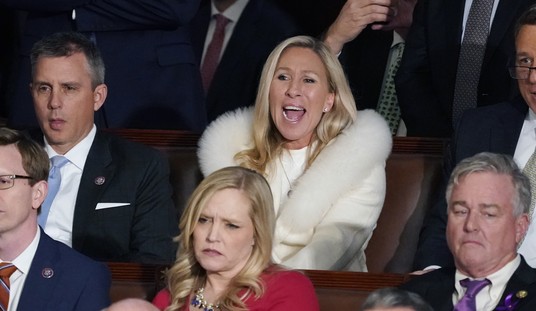Can the world's richest man be a populist?
Elon Musk has plenty of enemies on the left who say the Tesla CEO is too rich to be a champion of working Americans.
He has opponents on the right who say the same, notably Steve Bannon, the mastermind of the 2016 Trump campaign's anti-establishment messaging.
There's rumbling about a clash between the "tech right" and populist right in conservative as well as liberal media.
Vivek Ramaswamy, who was supposed to be Musk's partner in heading the Department of Government Efficiency, fell from grace with MAGA activists after he criticized Americans' work ethic and defended the H1B visa program.
DOGE aims to drastically cut the size of government, by as much as $2 trillion in Musk's most optimistic scenario.
Yet there are some conservatives who join progressives in insisting that slashing spending is what libertarians do, not populists.
President Donald Trump has taken the GOP a long way toward becoming a working-class party.
Is Musk undoing that -- turning the clock back to the days of Ronald Reagan?
If he is, Musk is really advancing populism, not betraying it.
Reagan wasn't just elected by Wall Street, whatever Democrats may think.
Blue-collar voters were the backbone of his electoral coalition, including working-class Americans who had voted Democratic for decades.
Reagan didn't win them over with promises of greater government benefits -- he did it by attacking a government that was bloated and burdensome to the ordinary taxpayer.
Trump voters, like Reagan voters, want less of a government that works against them.
Steve Bannon himself traces the origins of the Trump movement to the Tea Party revolt against government bailouts of financial institutions and other corporations "too big to fail" during the Great Recession.
The programs and agencies Musk is dismantling prop up an elite ecosystem in Washington that takes billions of dollars from taxpayers' pockets.
Take the foreign-aid agency USAID: According to its own reporting, last year only 12.1% of its spending went directly to providing aid in foreign countries.
The other nearly 88% of its budget went to "non-government organizations" in America that serve as conduits for the aid -- and take a cut of the money.
Unlock Aid, an organization calling for reform of foreign-aid programs, estimates "nearly nine out of every ten dollars that USAID spent" in 2022 "went to its international contracting partners, most of which are based in or around the Washington, DC area."
Four of the six counties in the United States with the highest household income -- including the one with the highest of all, Loudoun County, Virginia -- are in the D.C. region.
The nation's capital grows rich from the money its networks extract from taxpayers.
NGOs receiving USAID money do not, of course, keep it all for themselves -- only a slice.
But when tens of billions of dollars are flowing through the system every year, even a taste is a feast.
Not coincidentally, Washington, D.C. and its suburbs are deep blue on the electoral map, which helps keep Maryland and Virginia in the Democratic column in presidential contests.
And a certain portion of the aid money that stays with American NGOs, in the form of employees' salaries, gets passed on to the Democratic Party and progressive causes in the form of campaign contributions and other political donations.
That's what makes the system so hard to fight from within.
Republican officeholders are easily tempted into thinking they could run the machine for their own advantage, and indeed, there are plenty of NGOs in Washington that function as professional retirement homes for influential Republicans who have played the game.
The only way to get rid of the corruption is to bring in outsiders who can't be enticed by what Washington can offer.
Trump himself is one such outsider, and Musk is another.
Populism isn't about rejecting wealthy individuals like Trump or Musk, whose personal fortunes pale beside the kind of money government spends.
The point of populism is to curtail the self-dealing of an insider class that feeds off everyone's taxes.
Smaller government means government more focused on the limited number of things that are truly in the public's interest.
When DOGE cuts waste, fraud, abuse and self-dealing, it frees up funds that can go to better uses.
And when government doesn't take such a big bite out of American's paychecks in the first place, they have more money to spend taking care of their families and communities -- and to give to the international charities that they decide are best suited to help the needy abroad.
Not a cent that Musk and his team cuts disappears from circulation.
Instead the money is taken away from the elite and given back to uses the people approve of -- or it goes back to the people themselves, to be used the way they think best.
That's populism, and yes, Elon Musk, the richest man on earth, is a populist.









Join the conversation as a VIP Member